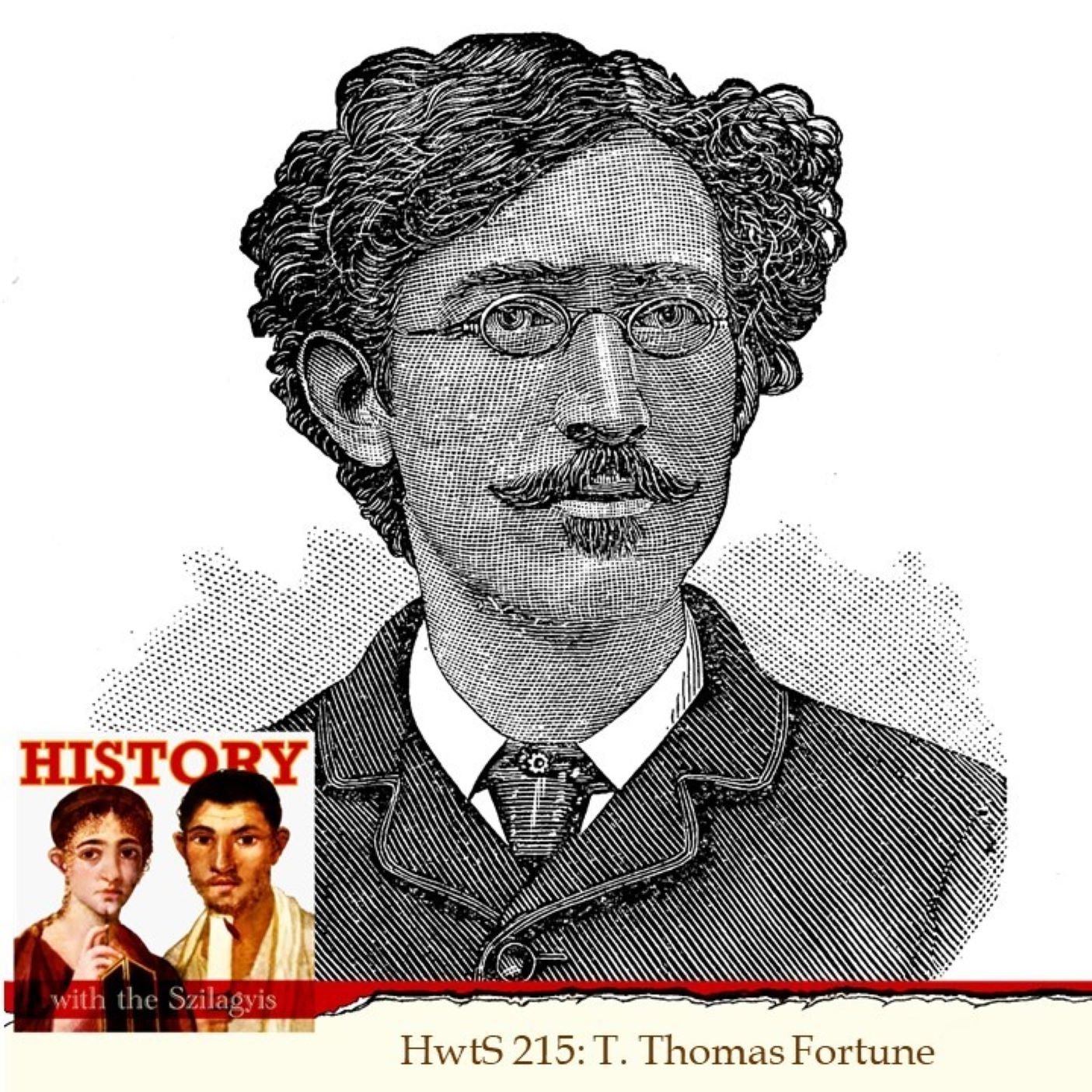T. Thomas Fortune
—Chrissie
Listen here: https://www.spreaker.com/user/bqn1/hwts215
Timothy Thomas Fortune was a journalist and civil rights leader in the late nineteenth and early twentieth centuries. He was born into slavery in 1856 and freed by the Emancipation Proclamation at age seven. There is some question about how much formal schooling he had: he did attend an elementary school in Marietta, Florida and the Edwin M. Stanton School, a college-prep school set up by the Freedmen’s Bureau in Jacksonville, Florida, but he doesn’t seem to have graduated.
Fortune also worked as a page in the Florida State Senate while his father was a member of the state constitutional convention and of the Florida House of Representatives, beginning in 1868. He then attended Howard University, but left after a year to work at the People’s Advocate, a Black-owned newspaper in Washington, D.C.
In 1879, he moved to New York City, working as a journalist and editor of the New York Globe. When the Globe closed in 1884, Fortune started his own newspaper, the New York Freeman (later the New York Age). He used his position to both advocate for integration and equal rights and to support African-American journalists and writers. The Freeman became the preeminent Black paper of the time, and featured work from such luminaries as Ida B. Wells, Gertrude Mossell, and W.E.B. DuBois. In 1884, he published a book, Black and White: Land, Labor, and Politics in the South, which discussed the issues confronted by the poor of all races. He believed the ultimate cause of the ills in society was the concentration of wealth; this caused poverty and slavery, whether it was the chattel slavery into which Fortune was born or the industrial wage slavery inherent to the modern world.
Fortune was also a founding member of the National Afro-American Council, which advocated for anti-lynching laws and to remove obstructions to voting for African Americans. Fortune was particular about using “Afro-American” as an identifier, because it represented both one’s “African origin and American birth.” The organization was also one of the first in the United States to welcome women as equal members and give them positions of leadership. The Council was eventually overshadowed by other organizations, including the NAACP, but remains an important part of the civil rights movement of the era.
Fortune continued as editor of the New York Age until 1907, when a nervous breakdown prompted him to sell the paper. It remained a prominent voice in African-American society until its closure in 1960. After selling the paper, he wrote books about politics and education as well as a collection of poetry. In 1923, he returned to journalism at the Negro World, for which he served as an editor until his death in 1928.
